JOURNEY TO FREEDOM:
SARAH GUDGER (1816-1938)
Born into slavery, Gudger was 121 years old
when interviewed in 1937
“No, I never knowed what it was to rest. I just work all the time from morning til late at night. I had to do everything they was to do on the outside. Work in the field, chop wood, hoe corn, til sometime I feels like my back surely break. I done everything except split rails….”
– Sarah Gudger
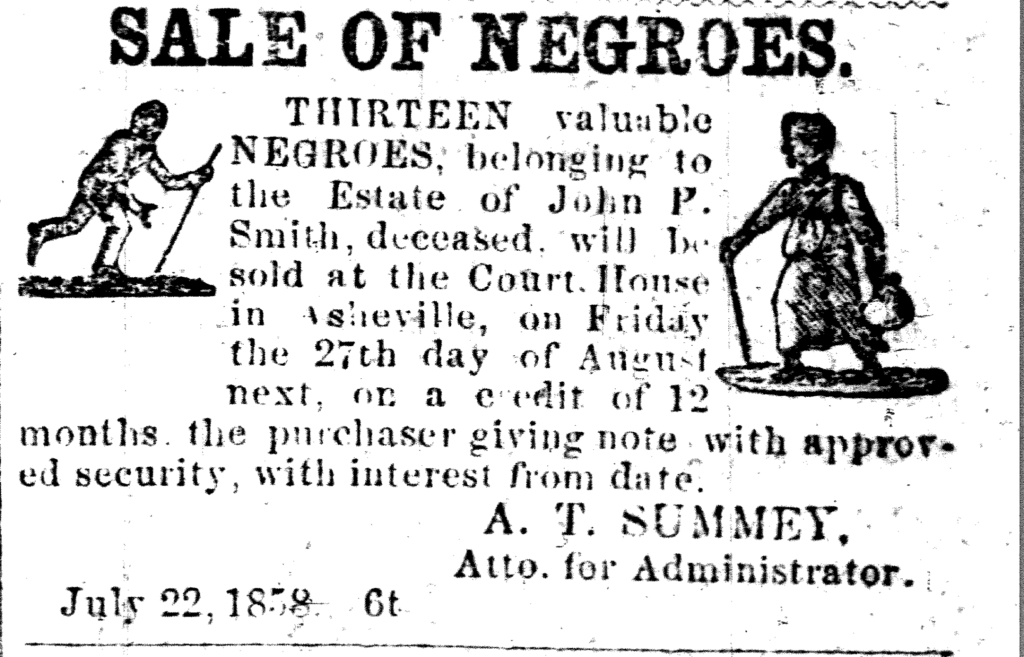
Today, enslavement in Appalachia is often overlooked because it does not resemble the popularly recognized image of large-scale plantation slavery. But enslavement in Buncombe County, where Sarah Gudger was born, was an important economic force that shaped the lives of all citizens. Enslaved people worked in construction, in hotels, as tour guides, and as farm laborers. In 1860 Buncombe County had 1,907 slaves and 283 slave owners. There were 111 Free blacks. The total population of the county was 12,654.
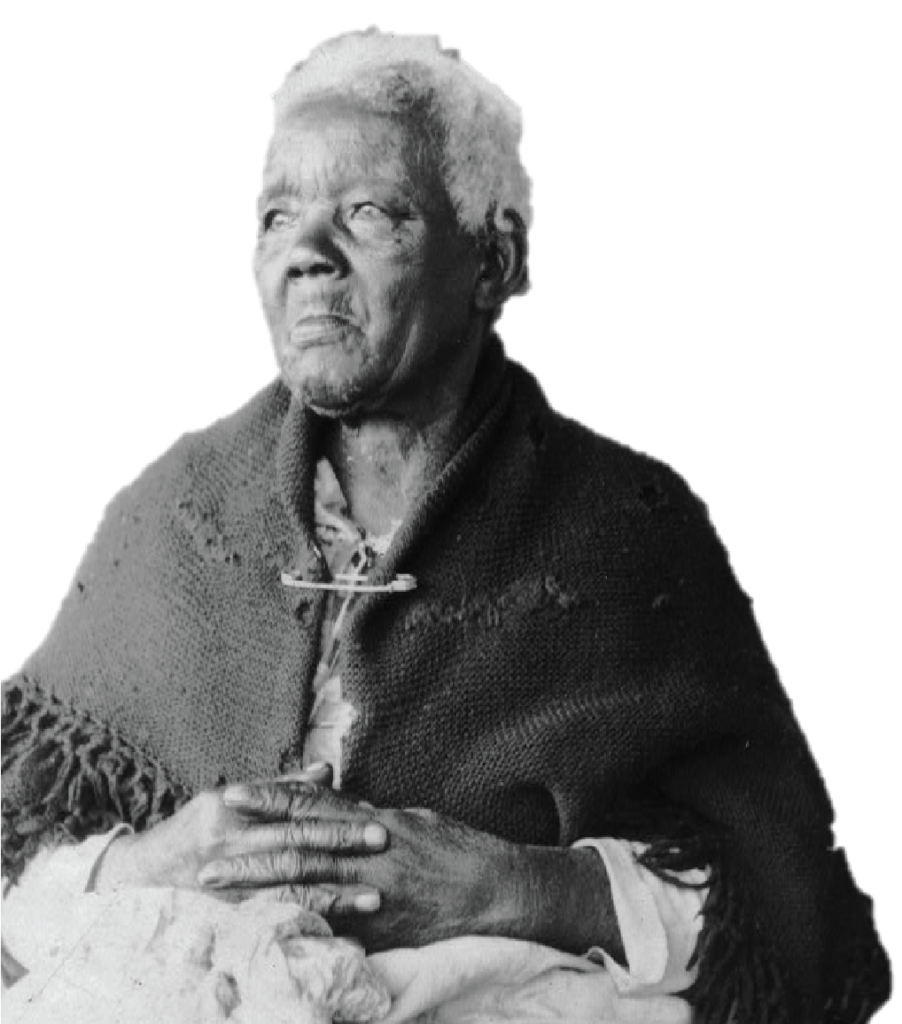
Born on September 15, 1816, Sarah Gudger was enslaved by the Hemphill family in the eastern part of Buncombe County until after the Civil War. In May of 1937, Sarah was interviewed in Asheville by a representative of the Federal Writer’s Project of the United States Work Projects Administration (USWPA).
As the only written, personal eye witness account of a person who was enslaved in Buncombe County, Sarah’s narrative provides a unique window into the time period. Below are many of her memories.
“Old Master [William Hemphill] strop us good if we did anything he didn’t like…. He tie your hand before your body and whup you, just like you’re a mule. Lawdy, honey, I’s took a thousand lashings in my day. Sometimes my poor old body be sore for a week.”
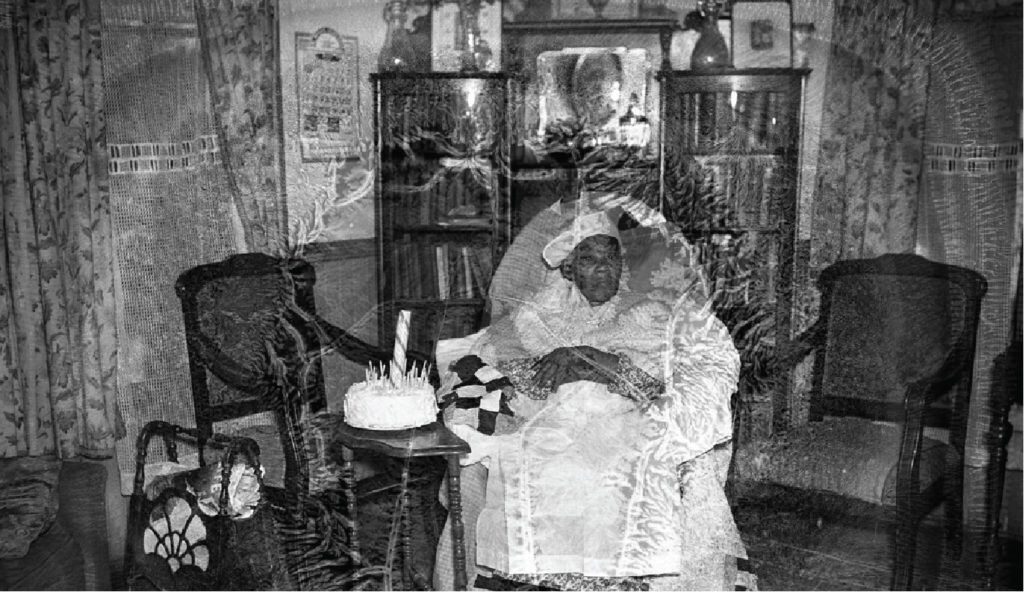
Sarah’s mother, Lucy McDaniel (c1800 – 1862), evidently lived with Sarah for a portion of her childhood. But eventually Lucy was separated from Sarah and sent to work on another Hemphill plantation on the other side of the mountains.
“I remember when my old mammy die. She live on Rims Creek with other Hemphills. She sick long time. One day white man come to see me. He say, ‘Sarah, did you know your mammy was dead?’ ‘No,’ I say, ‘but I wants to see my mother before they puts her away.’”
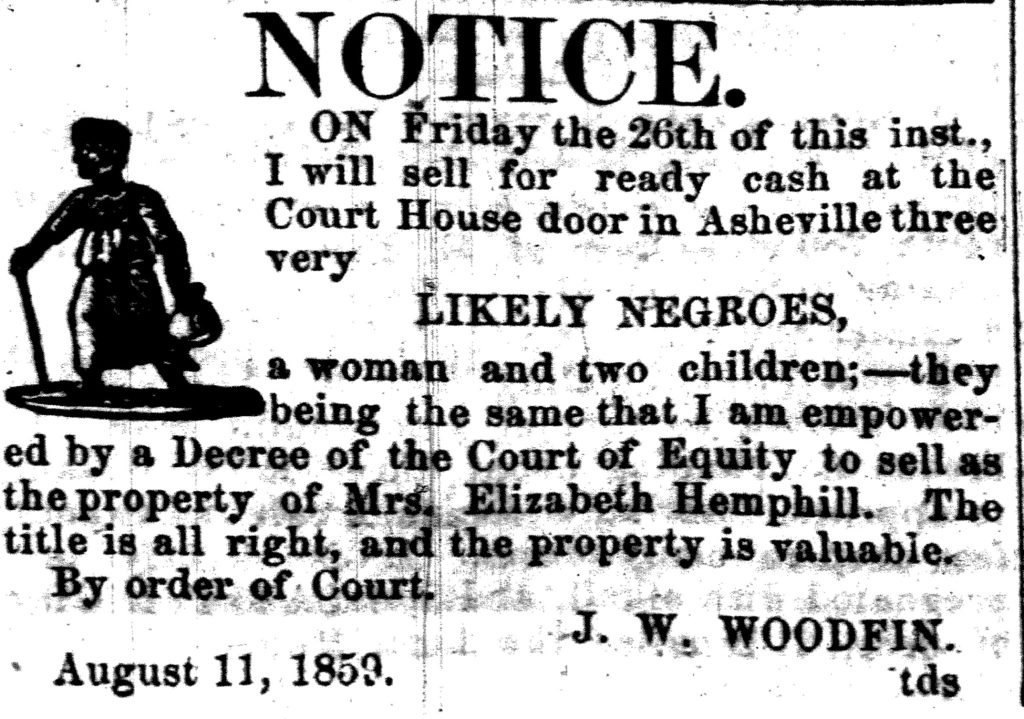
“I went to the house and say to Old Missie [Rosana Jane Hemphill]: ‘My mother she die today. I wants to see my mother before they puts her away,’ but she look at me mean and say: ‘Get on outta here, and get back to your work, before I wallup you good.’ So I went back to my work, with the tears streaming down my face…About two weeks later, Old Missie she get terrible sick…Wasn’t long before they put her away too, just like my mammy.”
Left: An ad from the “Asheville News,” August 25, 1859. Elizabeth and Benjamin Hemphill (1824-1909) lived on Reems Creek and were members of the extended Hemphill family. Sarah’s mother, Lucy McDaniel, was owned by William and Rosanna Jane Hemphill, also of Reems Creek.
“On the plantation was an old woman that the boss brought from a drover up in Virginia. She laugh and tell us: ‘Some of these days you all going be free, just like the white folk,’ but we all laugh at her. No, we just have to work and never be free. Then when freedom come, she say: ‘I told you all, now you got no learning, you got no nothing, got no home; what you gonna do?’”

“When the war was over, Master William he say: ‘Did you all know you all’s free now.’ I chuckle, remembering what old woman tell us about freedom, and no learning. A lot of men want me to go to foreign land, but I tell them I go live with my pappy, long as he live.”
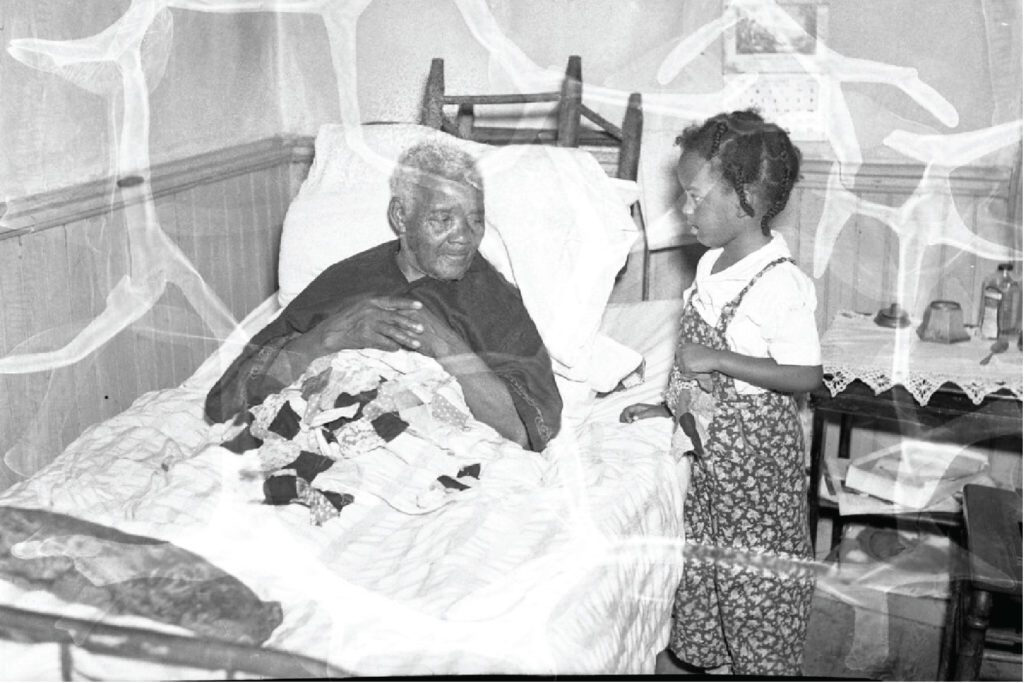
After Emancipation, Sarah went to live with her father, Smart Gudger, in Swannanoa. Smart (c1790s – c1890), took his family name from the man who enslaved him, Joe Gudger. By the time she was interviewed in 1937, Sarah was living with family members in Asheville. Sarah died on October 13, 1938. She is buried in Swannanoa.
The Buncombe County Register of Deeds has compiled a list of the documents that record the trade of people as slaves in Buncombe County. Click here to learn more about this resource.